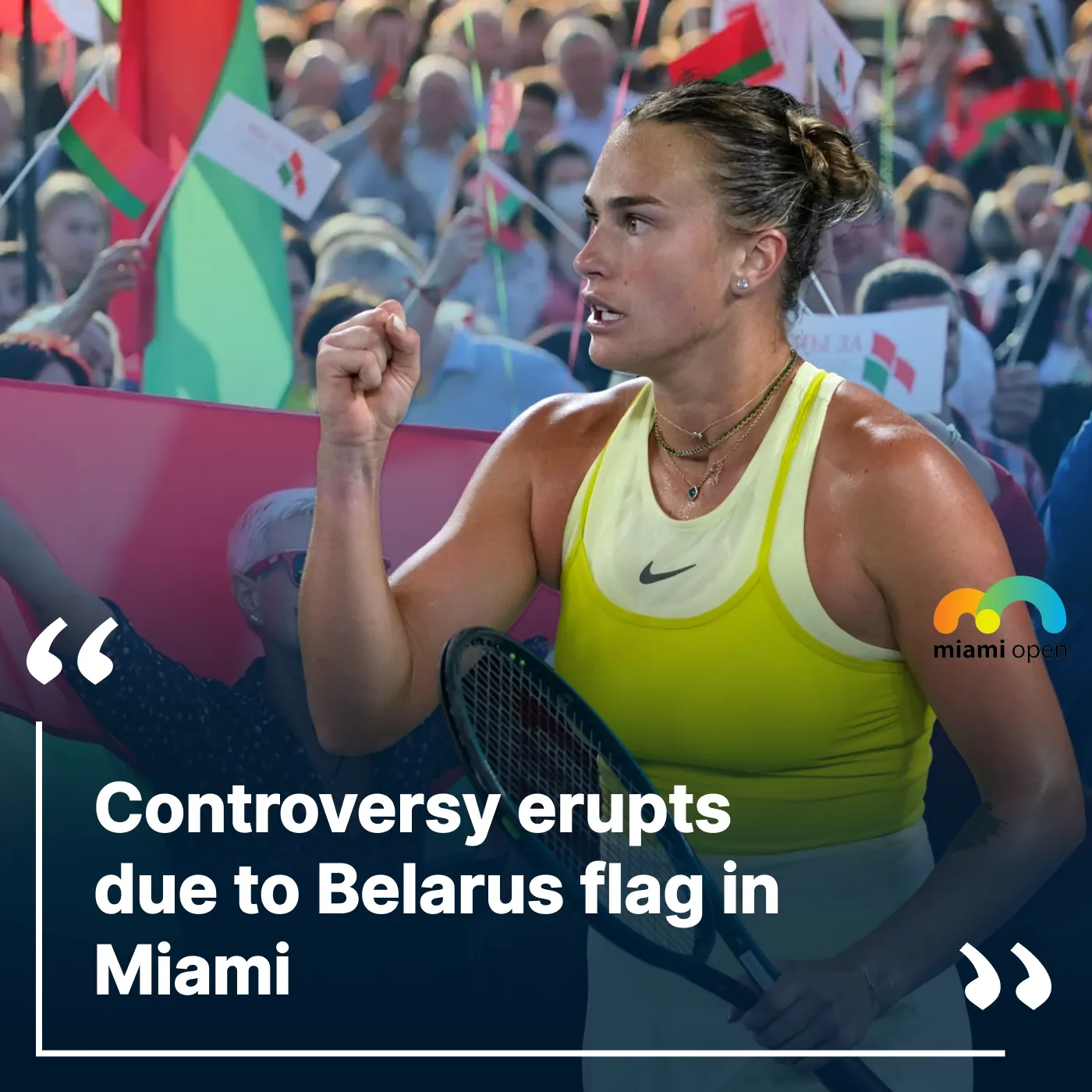During the Miami Open women’s singles final, a major controversy erupted when fans of Aryna Sabalenka displayed Belarusian flags in the stands, prompting immediate intervention by security personnel. The incident occurred as Sabalenka faced Jessica Pegula in a highly anticipated match that would ultimately see her claim the title. The display of Belarusian flags, which are banned from the tournament due to ongoing geopolitical tensions, led to a tense altercation between the fans and security staff.

The Miami Open, like several other tennis tournaments, has enforced strict regulations prohibiting the display of Russian and Belarusian flags due to the political situation surrounding both countries. Players from these nations are required to compete under a neutral flag, and spectators are also barred from bringing national symbols associated with the two countries. This rule has been in effect across various major tournaments, including the Australian Open, which faced similar controversies in recent years.

Eyewitnesses at the scene reported that security guards swiftly moved in to confiscate the flags and instruct the fans to remove them. Some fans resisted, leading to heated exchanges and a brief disruption of the match. The incident quickly gained traction on social media, where opinions were sharply divided. Some users expressed outrage at what they perceived as unnecessary censorship, while others defended the tournament’s policies, arguing that such measures are necessary to maintain a politically neutral sporting environment.

Despite the commotion, Sabalenka remained focused and went on to secure a dominant victory over Pegula, winning 7-5, 6-2. The triumph marked her first Miami Open title, her eighth WTA 1000 title, and her 19th overall career title, further solidifying her status as one of the top players in women’s tennis. However, the controversy surrounding the flag incident somewhat overshadowed her victory, with discussions about the enforcement of neutrality rules continuing long after the match ended.
Sabalenka, who has previously spoken about the challenges of competing under a neutral flag, did not immediately comment on the incident. In past interviews, she has expressed frustration with the restrictions placed on Belarusian and Russian athletes, emphasizing that she prefers to focus on her game rather than political issues. Nonetheless, her nationality remains a focal point in discussions surrounding international tennis regulations.
The flag incident has reignited debates about the role of politics in sports. Some analysts argue that banning national flags of certain countries unfairly singles out athletes and fans who have no direct involvement in geopolitical conflicts. Others maintain that these measures are necessary to prevent politically charged disruptions and ensure that sporting events remain free from controversy.
This is not the first time flag-related disputes have surfaced in professional tennis. The Australian Open previously made headlines for removing Russian and Belarusian flags from the stands following complaints. Similar tensions have been reported at other international sporting events, further fueling ongoing debates about the intersection of politics and sports.
As the Miami Open draws to a close, the controversy surrounding Sabalenka’s fans continues to make waves across the tennis world. While the tournament organizers have not issued a formal statement regarding the incident, it is clear that the discussion over national symbols in sports is far from over.
 Shocking Controversy at Miami Open: Aryna Sabalenka Fans Wave Belarusian Flags
Shocking Controversy at Miami Open: Aryna Sabalenka Fans Wave Belarusian Flags  , Security Rushes In – Heated Clash Unfolds!
, Security Rushes In – Heated Clash Unfolds! 







